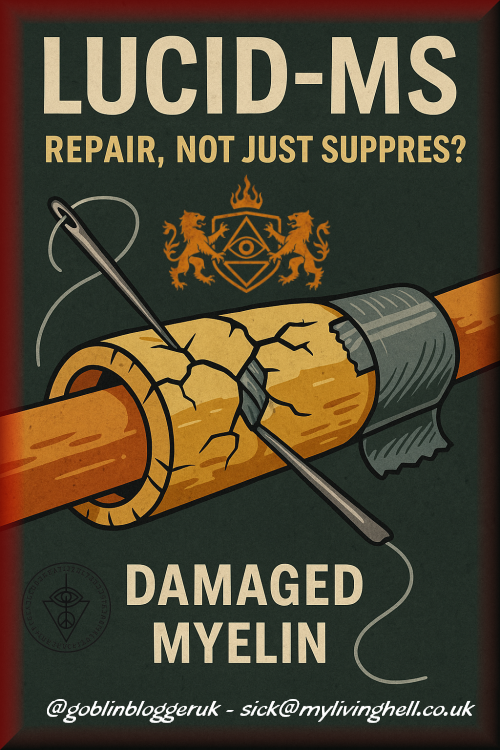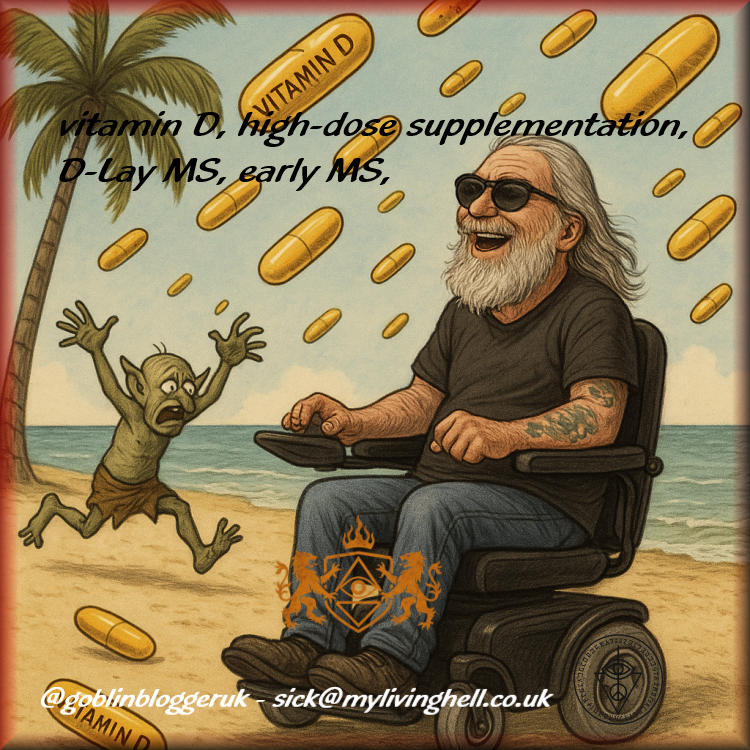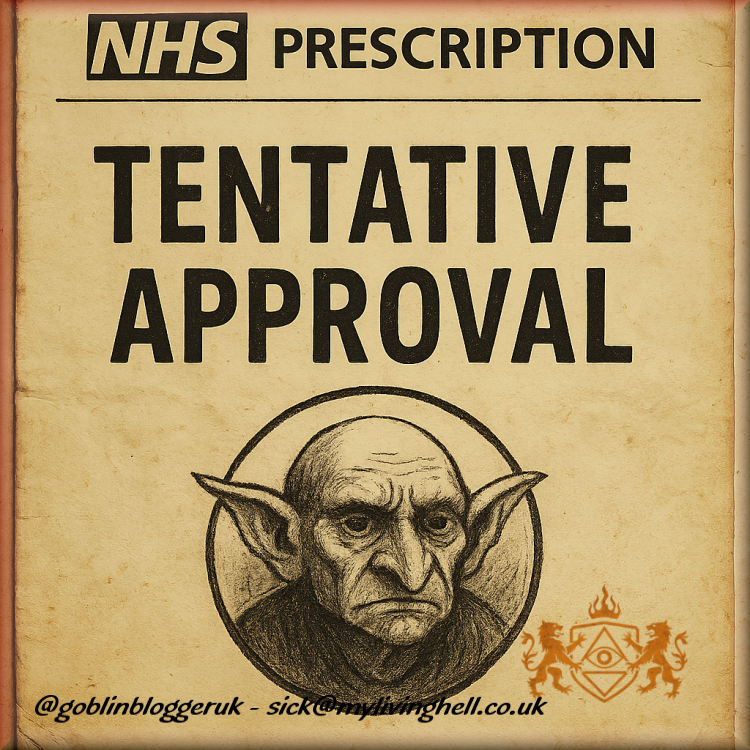- Posted on
⚠️ Please read with care: This blog shares personal, sometimes painful experiences. My intention is to support and speak honestly not to harm. I’m not a professional, just someone who understands how hard it can get. If you're struggling, you're not alone please reach out for professional help.
Quantum Biopharma is pushing Lucid-21-302 (Lucid-MS) an oral therapy that doesn’t just suppress MS, but claims to repair the damage. They’ve finished a 90-day toxicity study in animals and healthy humans, and plan to ask the FDA to start a Phase 2 trial before the end of 2025.
Exciting? Sure. But also smells like a long, slow queue. Let’s break it down for us “mere humanoids” slogging through MS.
What They’re Claiming (Because Hope Matters)
Lucid-MS is non-immunomodulatory. Translation: it doesn’t mess with your immune system like current drugs do (so fewer collateral hits). Instead, it supposedly blocks peptidyl arginine deiminases (PADs) — enzymes that convert arginine in proteins to citrulline, making myelin more vulnerable. By inhibiting PADs, Lucid-MS aims to protect and repair the myelin sheath around nerves.
Animal studies show up to 50% myelin protection and repair, with some mobility improvements. Phase 1 in healthy humans showed tolerable safety so far.
Why This Could Be Huge (And Why I’m Not Popping Champagne)
The Upside:
Remyelination therapy is basically the holy grail. Most current drugs just slow the slide; repairing damage? Rare.
Oral pill = less faff than injections or pumps.
If it works, some lost functions might actually return, not just stop declining.
The Reality Check:
Phase 1 = safe in healthy folks ≠ proof it works in MS patients. Our nerves + immune system are messy; rodent results often flop in humans.
Timeline is a grind: IND filing → FDA approval → Phase 2 → years of trials before it hits the NHS.
Even if it’s safer, there will still be side effects, dosing puzzles, long-term unknowns, and likely a nasty price tag.
A UK Perspective
If Lucid-MS clears trials, NICE may take notice — repair therapies are rare and high-interest. But the NHS moves like treacle. They’ll demand compelling efficacy & safety data before adoption, and even then, cost and commissioning often throw up barriers.
Result? Some folks will get early access via trials or private means, while the rest wait. Patience becomes a cruel sport.
Future Implications
If Lucid-MS works:
Could launch a new era of myelin repair therapies.
Might shift MS care from “manage symptoms” to “fix what’s broken.”
Could encourage pharma to invest more in actual repair, benefiting everyone with MS.
Dark Sarcasm Moment
“Phase 2 by end of next year, we promise.” “Safety so far, nothing severe.” Translation: Maybe we see something in 2029 if the stars align and no one eats the budget.
What to Do While Waiting
Ask your neurologist what pipelines like Lucid-MS mean for you. Knowledge is ammo.
Watch clinical trial registries; Phase 2/3 recruitment sometimes sneaks into the UK/EU.
Push for cost transparency. If it works, I want to know if I’m paying with my sanity or bank account.
Support patient advocacy groups. Sometimes lobbying is what nudges a “nice-to-have” into real NHS access.
Conclusion
Lucid-MS: could be a repair tool, a breakthrough, or just another lab-mouse starlet. Either way, worth watching. Hope isn’t a cure, but it keeps the fight alive. And we’ll take what we can incremental progress, sarcasm, and the occasional glimmer.
I write in ink and fury, in breath and broken bone.
Through storm and silence, I survive. That is the crime and the miracle.



